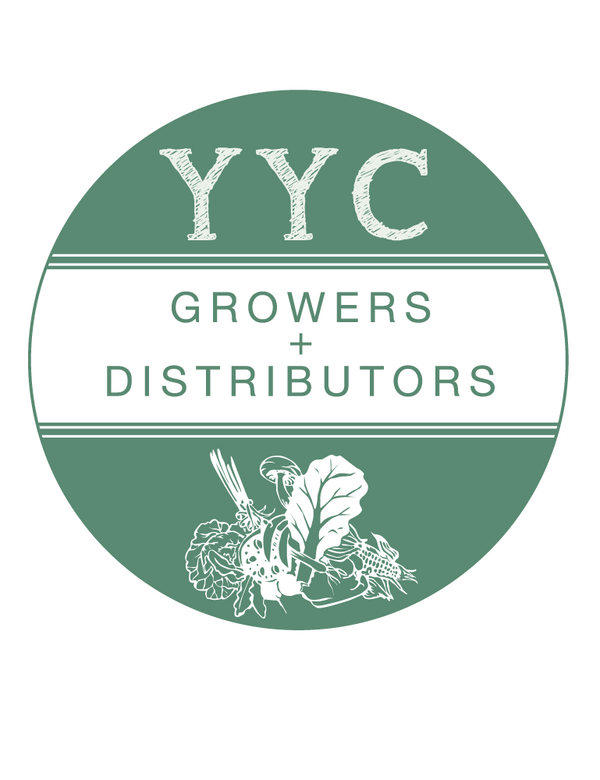Soil is the foundation of sustainable agriculture. It provides nutrients and water to plants, protects them from pests and disease, stores carbon and helps regulate global climate change by absorbing atmospheric carbon dioxide (CO2).
Soils are also home to billions of microorganisms that play an important role in nutrient cycling as well as providing food for other organisms such as earthworms and insects!
It should go without saying that soil science research is critical for agricultural sustainability. This research helps us understand how to manage our soils in a way that ensures their long-term health and productivity.
Here at YYC Growers, we’re soil nerds… and proud of it! We’ve made it a priority to invest in soil research and partner with others supporting the cause.
Let’s dig in and find out a bit more about this critical research. 😉

WHAT IS SOIL SCIENCE RESEARCH?
Soil science is the study of soils and their properties, including their origin, distribution, and classification. The research can be divided into three main categories: physical, chemical and biological.
- Physical soil scientists study the properties of soil that affect its ability to support plant growth (such as texture).
- Chemical soil scientists focus on how chemicals in the soil interact with each other and with plants.
- Biological soil scientists examine how organisms like bacteria and fungi interact with their environment, including their role in decomposition processes.
Soil scientists have learned that the soil is a living ecosystem and that it can be damaged by human activity. They have also discovered how to restore damaged soils, which will help keep our planet healthy and productive for generations to come.
Thus, soil scientists can be concerned with many aspects of soil science such as:
- Soil health: The condition in which a soil functions at its optimum level for supporting plant growth and ecosystem function under sustainable conditions; also called "ecosystem services" or "ecosystem integrity".
- Soil conservation: The protection of soils from erosion by wind or water; includes practices such as contour plowing that reduce runoff while increasing infiltration rates into the ground.
- Sustainable crop production: The use of practices that maintain long-term productivity while minimizing negative impacts on biodiversity (e.g., pesticide use) and human health (e.g., water pollution).
Soil Degredation
Soil degradation poses significant risks to agriculture and the environment. It can lead to reduced crop yields, loss of soil fertility, and increased vulnerability to pests and diseases. Soil erosion, compaction, and salinization are all examples of soil degradation that can threaten food security and biodiversity.
Additionally, degraded soils can release greenhouse gases into the atmosphere, contributing to climate change. Without proper management and conservation efforts, soil degradation can have long-term impacts on our ability to produce food and sustain ecosystems.
BENEFITS OF SOIL SCIENCE RESEARCH
Through soil science research, we can learn how to improve soil structure, increase nutrient availability, and promote healthy plant growth. This can be achieved through practices such as crop rotation, cover cropping, and reduced tillage, which can help to improve soil health and reduce erosion.
Soil science research also helps us to develop sustainable farming practices that can reduce the negative impacts of agriculture on the environment. For example, by minimizing the use of synthetic fertilizers and pesticides, farmers can reduce the amount of chemicals that are released into the soil and water, which can help to protect ecosystems and improve water quality.
Moreover, soil science research also helps us to understand the role of soil in mitigating climate change. Soil carbon sequestration, for example, is a process that involves capturing carbon dioxide from the atmosphere and storing it in the soil. This can help to reduce greenhouse gas emissions and mitigate the impacts of climate change.
In the future, we can expect to see even more innovation in soil science research.
- New technologies will be developed that allow us to better understand how soil functions and how it interacts with plants and other organisms.
- Advances in fertility management will help farmers increase their yields while reducing the amount of fertilizer used on their fields.
- Climate-smart agriculture provides another avenue for researchers to explore ways to improve productivity while protecting natural resources like water quality and biodiversity.

FOR THE FUTURE
At YYC Growers, we believe that soil health equals plant health and, in turn, your health. So why wouldn’t we be investing in learning and improving our soil knowledge?
Soil science research is essential for agricultural sustainability as it provides the knowledge and tools needed to manage our soils in a way that ensures their long-term health and productivity, while also protecting the environment and mitigating the impacts of climate change.
Importantly, soil science research has many policy implications. The most obvious is the need for government funding for soil science research, which is currently lacking. In addition, policymakers should consider legal implications of soil science research results when making decisions about land use and conservation practices.
If you’re interested in talking soil, you’ve come to the right place. Reach out to us at info@yycgrowers.com to strike up more conversation.
You can also share your feedback with us! Comment on our Facebook or Instagram feed. We love to hear from you!
Your YYC Growers Team
*Source: https://www.ncsu.edu/ncsu/soils/news/climate_smart_agriculture

